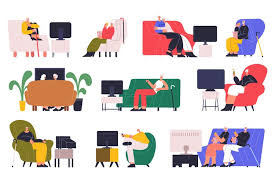Nuance Audio is a new option for people who resist traditional aids, from the company that makes Ray-Bans and operates LensCrafters.
Seekers of Meaning Podcast Posted Online March 7, 2025
What's Next Longevity Deal Talk Episode 32, January, 2025
Presentation: What's Next Longevity Venture Summit, June, 2025

 The rise of AgeTech – it is a trend. It’s easy to say, and
The rise of AgeTech – it is a trend. It’s easy to say, and  For older adults, television is a solid rock in an ever-shifting technology landscape. Approximately
For older adults, television is a solid rock in an ever-shifting technology landscape. Approximately  2021 – even less travel than previous – so for many, it was the best of times. Not just for Zoom,
2021 – even less travel than previous – so for many, it was the best of times. Not just for Zoom,  It's 2021 -- are older adults well-served by technology? Some progress has been made --
It's 2021 -- are older adults well-served by technology? Some progress has been made --  September 2021 – it got away.
September 2021 – it got away.  Once upon a time, there were photo albums. You know, the kind that have leather-like binders, with plastic covers for the prints. People would buy extra prints for their friends and relatives after a big event like a wedding (remember wedding albums?). Binders would fill bookshelves (remember bookshelves? They once held books). Then along came Facebook so that families could keep up with each other’s kid and dog photos. A study in 2013 noted that this was a bit
Once upon a time, there were photo albums. You know, the kind that have leather-like binders, with plastic covers for the prints. People would buy extra prints for their friends and relatives after a big event like a wedding (remember wedding albums?). Binders would fill bookshelves (remember bookshelves? They once held books). Then along came Facebook so that families could keep up with each other’s kid and dog photos. A study in 2013 noted that this was a bit